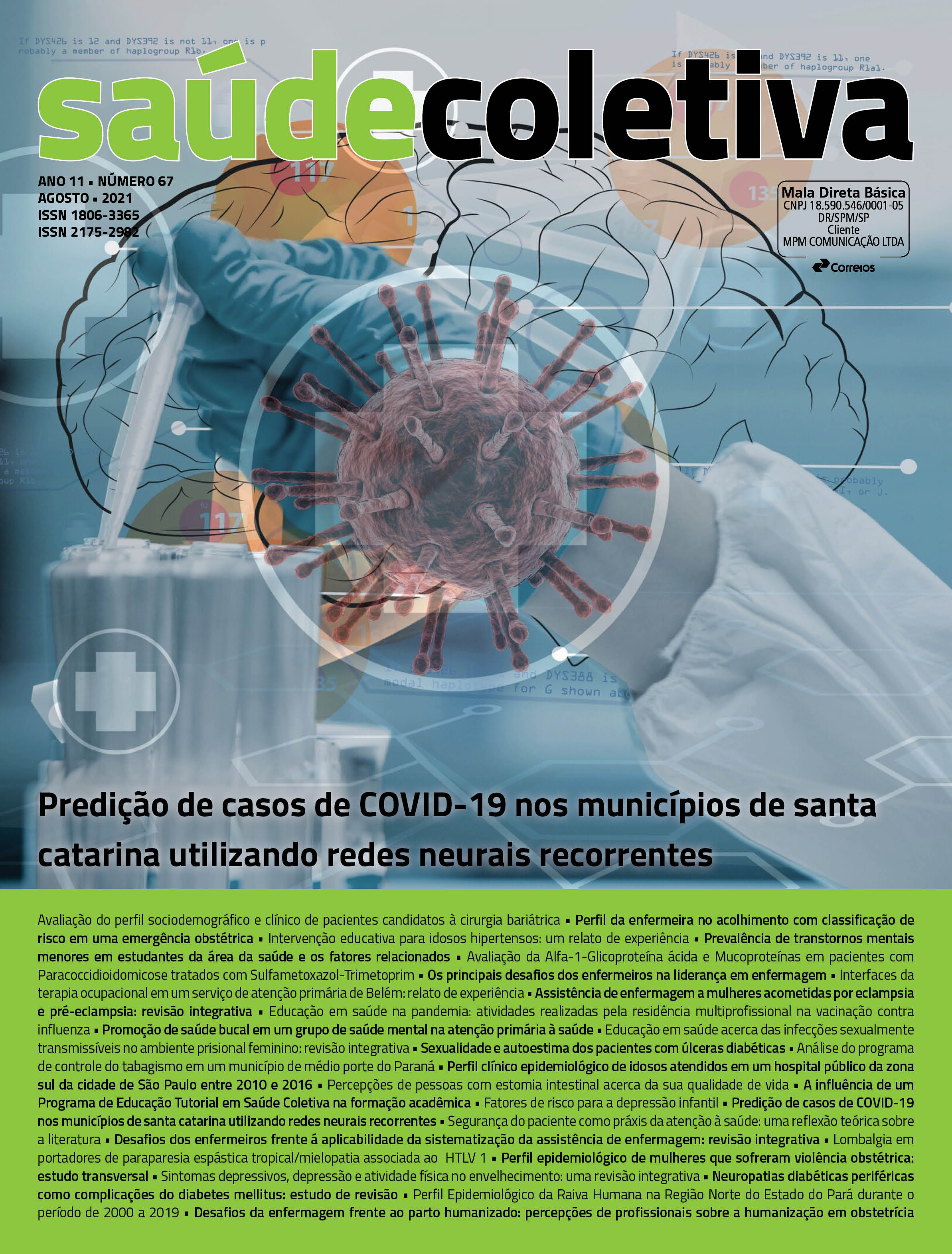Analysis of the smoking control program in a middle municipality in Paraná
DOI:
https://doi.org/10.36489/saudecoletiva.2021v11i67p6789-6800Keywords:
Tobacco Use Disorder, Primary Health Care, Smoking PreventionAbstract
Objective: To analyze the treatment outcomes for smoking cessation offered by the Basic Health Units, inserted in the Tobacco Control Program, of a medium-sized municipality in the State of Paraná. Method: Documentary, descriptive research with a quantitative approach. The data used included the municipal plans and the documents available at the Municipal Health Department of the municipality from 2015 to 2019. The results were tabulated in the Microsoft Exel 2016 Software, analyzed by descriptive and inferential statistics, using the chi-square test of Pearson with the aid of the EpiInfo version 7.0 statistical environment. Results: During the period analyzed, the municipality assisted 2,339 users. There was a decrease in demand and treatment effectiveness, in addition to an increase in treatment dropout rates. Conclusion: The municipality offers assistance to smokers, as provided for by the National Tobacco Control Program, however, it presents weaknesses for it to occur successfully.







